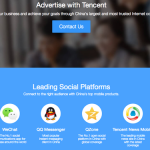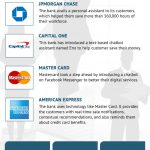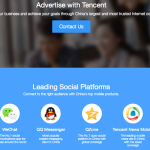This Networking Platform Lets You Pay For Advice From Employees At Your Dream Job
The landing page for Purple Squirrel makes a huge promise: “Land a $100K job with no connections.”
The next line spells out how: “Purchase time with real employees at the best companies in the world to get your foot in the door and learn the tips you need to get hired quickly.”
In this case, pay to play makes sense if you want to break into the likes of Facebook, Tesla, Deloitte, or another of the more than 500 companies that have employee advocates on Purple Squirrel’s platform, according to its cofounder and CEO, Jon Silber. An advocate is a current employee, but doesn’t formally represent the employer. Rather, they act as a paid mentor for 30-minute phone consultations.
For someone in the early stage of their career or in the midst of a transition who doesn’t have much of a professional network, the idea that they could tap into one at the company of their dreams could be compelling. The alternative is attempting to set up an “informational interview” that can be tough to nail down. Professionals of all stripes are busy, and if they’re not looking to hire, getting time on their calendar to answer some general questions about getting a job won’t always be a priority. Purple Squirrel takes it one step further. Purple Squirrel’s network of advocates are current employees who are not only offering their time to connect, but they’re prepared to give you personalized advice on resumes and interviews during their phone consultation.
If an advocate is sufficiently impressed with the job seeker, it could lead to a referral. Thanks to Glassdoor’s research, we know that interviews sourced from employee referrals boost the chances of a successful hire by 2.6% to 6.6% compared to all other hiring channels.
But Purple Squirrel’s draw for employers is meant to be just as compelling.
By acting as a matchmaking marketplace for advocates and jobseekers, companies can boost their chances of finding ideal candidates among hundreds of potential applicants for each position.
The site is officially launching out of a yearlong invite-only beta test on March 21. During that time, Silber, a veteran of Google and Forrester Research, says the platform has amassed about 2,000 advocates, some of which are only visible to MBA students and other members of universities and certain professional groups.
Although they represent industries that range from tech to entertainment to retail, Silber points out, “We are following in the footsteps of companies like Slack and Atlassian by taking a ‘bottom-up approach’ of amassing individual employees before enterprise partners.” He says “dozens of companies” requested to join already, “but we are building critical mass first before selecting the enterprise companies we wish to partner with.”
That strategy is to ensure the quality of the advocates, says Silber. “When Reid Hoffman started LinkedIn, he only asked 112 peers to join, and then asked them to refer a few peers they respected,” he explains. “We have also let job seekers who used the platform to become advocates after they landed a job.”
The quality of the job seekers is comparable, Silber says. “We cater to high-achieving undergraduate students, MBA students, and mid-level executives,” he notes. So far, Silber asserts, “Slightly more than 50% of our users have received employee referrals.” He did not disclose how many have received offers, although some have landed jobs. “Exact attribution is difficult in this industry, but we know people are landing jobs through our site because they keep referring their job-seeking peers, and signing up to become advocates four to six weeks after using our platform for the first time,” he explains. The average salary of new hires through Purple Squirrel is $112,000, hence the six-figure claim.
Silber says the guaranteed access to employees at top companies and the personalized feedback they give is currently missing from the interview process. Part of what makes this personal approach possible, says Silber, is, “Much like Airbnb, users set their own rate, and pricing is based on market dynamics.” That said, Silber points out that most advocates aren’t charging that much. The average is around $30, and, he says, many choose to donate the money to charity. Silber says Purple Squirrel takes 20%.
Advocates can choose who they want to work with, and measures are put in place to prevent job seekers from getting pesky if they don’t get a referral. “We control all messaging activity that happens over the platform,” says Silber, “and there are a variety of personal reasons why a request would be declined.”
Purple Squirrel’s launch is just the latest in a growing list of companies aimed to fix broken job search and recruiting models. We know that human connections can be more valuable than algorithms, even though a chatbot can help make sure your resume doesn’t go into a black hole. Connections may be the currency of LinkedIn, but it’s tough to single out the right one from over 300 million members–especially in light of the fact that some jobs don’t get advertised.
The promise of getting a personal referral spawned a series of new businesses. Among them: networking applications like Work4 that aim to do the same on Facebook, and Shapr that intends to whittle down the massive crowd into a meaningful set of professional matches.
Purple Squirrel seems to have cracked that nut (sorry) simply by promising to pay professionals fairly for their time. It sure beats having to field requests from strangers to pick their brains and plunder their networks for the price of a latte.
Fast Company , Read Full Story
(45)














